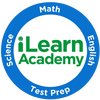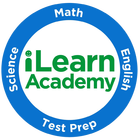Your essay is the only opportunity to speak directly to the admissions office to show how you think, what you value, and what makes you unique from the thousands of others competing for a spot at your dream school. Step 1: Brainstorm Start by considering specific experiences that you’ve had. If asked about how your background has shaped you as a person, ask yourself:
When reflecting, always remember that there are two sides to an argument. Your ability to recognize both the benefits and disadvantages of a situation shows college-level thinking skills. Step 3: Get Started The hardest part of writing any paper is getting started. This essay will take multiple drafts; the final result may look completely different than when you first started and that’s okay!
Additional Tips:
If you are interested in getting some help, iLearn Academy offers a college essay package. Our professional writing instructors help students revise their essays into stronger, more compelling pieces.
Package includes: - Two, one-hour sessions with an English instructor: Review your rough drafts to determine areas for improvement. - One full round of proofreading and edits: Get your essay proofread for content, structure, writing conventions and grammar. Call iLearn Academy at 847-834-0791 for more information!
1 Comment
Free Application for Federal Student Aid (FAFSA) is now open. Here is a great article to help you maximize your college financial aid eligibility. It's also important to know that colleges and state grants have early deadlines so you don't want to miss out. Read more...
Before the Conference: Be prepared.
During the Conference: Stay positive
After the Conference: Monitor progress
If you found this article to be useful or if you have any follow-up questions, please leave a comment and we will be happy to offer our help! |
Categories |
We make a personal commitment to ensure each student is well-prepared for the academic school year.
Dedicated to helping your student succeed.
©
iLearn Academy 2019








 RSS Feed
RSS Feed
